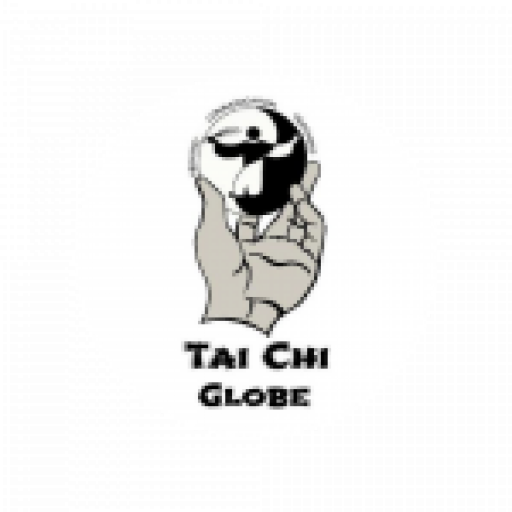
Discover the Proven Benefits of TCM for Liver Health: Unlock Transformative Healing Insights
Benefits of TCM for Liver Health: Unlock Powerful Holistic Healing Insights Discover Holistic Practices for a Healthier, Balanced You Exploring Holistic Liver Health Through the Lens of TCM
Discover Holistic Practices for a Healthier, Balanced You Exploring Holistic Liver Health Through the Lens of TCM.
Welcome to an exploration of the liver through the lens of Traditional Chinese Medicine (TCM), uncovering the benefits of TCM for liver health and holistic well-being. In TCM, the liver is closely associated with the spring season, a time of renewal and growth. Spring is considered the ideal time to support and nurture your liver’s health, aligning with the Wood element’s energy. This article explores how TCM can help you harmonise with the season and enhance your overall well-being. This fascinating organ, central to our physical and emotional health, holds a much broader significance in TCM than in Western medicine. Let’s delve into its roles, functions, and how you can support your liver’s health holistically.
What Makes TCM an Optimal Choice for Enhancing Liver Health?
Traditional Chinese Medicine (TCM) provides a distinctive and comprehensive approach to liver well-being, emphasizing body, mind, and energy interconnection. Unlike Western medicine, TCM perceives the liver as more than just an organ for detoxification; it plays a crucial role in the smooth flow of Qi (life energy) and emotional equilibrium. TCM not only addresses physical ailments but also considers emotional imbalances, acknowledging that stress and suppressed anger can directly impact liver function. Therapies such as acupuncture, natural remedies, and Qigong work harmoniously to enhance liver health by stimulating blood circulation, emotional wellness, and detoxification.
TCM vs. Western Approaches to Liver Health
While Western medicine emphasizes the liver’s role in filtering toxins, storing nutrients, and metabolizing substances, TCM takes a broader perspective. In TCM, the liver governs the free flow of Qi and blood throughout the body, impacting emotional and physical health. For instance, TCM links liver imbalances to stress, frustration, and anger, while Western medicine may address these symptoms without connecting them to liver function.
Moreover, TCM incorporates preventative care through diet, lifestyle adjustments, and energy-based practices such as acupuncture. Western medicine often focuses on treating diseases after they arise, such as fatty liver or hepatitis. TCM, by contrast, aims to maintain balance and prevent these conditions by supporting the liver’s energetic and emotional roles. This integrative perspective allows for a more comprehensive approach to health and well-being.
Liver Health in TCM: Traditional Chinese Medicine Insights
In Western medicine, the liver is primarily viewed as a detoxifying organ, metabolic hub, and nutrient storage facility. TCM, however, expands this understanding, attributing the liver to physical, emotional, and energetic responsibilities. It is intricately linked to the balance of the mind, body, and emotions.
A Historical Perspective
The concept of the liver in TCM dates back thousands of years, with its theoretical foundations emerging during the Zhou Dynasty. Scholars and physicians gradually understood its significance through observation and knowledge-sharing. For a deeper dive into the historical evolution of TCM, visit resources like the Huángdì Něijīng translation archives or authoritative texts on TCM history.
One of the oldest texts, Huángdì Něijīng (The Yellow Emperor’s Classic of Internal Medicine), written around the 2nd century BCE, describes the liver as the “general” of the body, responsible for the free flow of Qi (qì or life energy). It stores and regulates blood, distributes energy, and supports emotional and physical harmony.
The Liver Meridian
The liver meridian runs from the toes through the inner legs, groin, abdomen, chest, eyes, and crown of the head. In TCM, the Zang organs are a group of five vital organs—the liver, heart, spleen, lungs, and kidneys—each associated with specific elements, emotions, and functions. They store and regulate essential substances such as Qi, blood, and spirit. As one of these five Zang organs, the liver works alongside the heart, spleen, lungs, and kidneys, storing essential elements for the body. It is associated with the Wood element, spring season, green colour, and sour taste.
Functions of the Liver in TCM
Regulating Qi Flow
The liver ensures the smooth flow of Qi throughout the body. Blockages can lead to liver Qi stagnation, resulting in emotional and physical complaints like irritability, headaches, or menstrual disorders.
Storing and Regulating Blood
During the day, blood nourishes muscles and organs. At night, it returns to the liver for regeneration. This cyclical function supports physical activities and regulates menstruation. Disharmonies often manifest as irregular cycles, PMS, or fatigue.
Emotional Health
Emotions are closely tied to organ function in TCM. The liver is mainly associated with anger and frustration. Healthy expression of anger is normal, but excessive or suppressed anger can lead to inner unrest or mood swings, often linked to Qi stagnation.
Connection to the Eyes, Tendons, and Nails
In TCM, the liver “opens into the eyes,” meaning its health is reflected in vision. It also influences the health of tendons and nails, with symptoms like blurry vision or brittle nails indicating disharmony.
Common Liver Disharmonies
Liver Qi Stagnation
- Symptoms: Chest tension, irritability, menstrual issues, and digestive discomfort.
- Treatment: Acupuncture, herbal therapy, and Qigong can harmonize Qi flow.
Liver Blood Deficiency
- Symptoms: Dizziness, pale skin, fatigue, and dry eyes.
- Treatment: Blood-nourishing herbs like Dang Gui and ginseng.
Liver Heat
- Symptoms: Red eyes, irritability, and headaches.
- Treatment: Cooling herbs to eliminate heat.
Liver Wind
- Symptoms: Tremors, dizziness, or even stroke in severe cases.
- Treatment: Addressing underlying causes like blood deficiency or liver heat.
Promoting Liver Health through Nutrition and Lifestyle
Supporting the liver involves mindful nutrition and lifestyle choices:
Foods That Support the Liver
- Green Vegetables: Spinach, kale, and broccoli promote detoxification.
- Sour Foods: Lemon, lime, and sauerkraut aid liver tonification.
- Herbs: Mint, turmeric, and rosemary facilitate Qi flow.
- Whole Grains: Quinoa and barley regulate energy.
- Bitter Foods: Radicchio and artichokes detoxify and strengthen digestion.
Practices for Liver Health
- Acupressure: Stimulate liver meridian points, particularly LV3 (Tàichōng).
- Warm Compresses: Relax and detoxify the liver region.
- Mindfulness: Engage in meditation, Qigong, or creative outlets to balance emotions.
Self-Care Tips
Acupressure for Liver Support
- Point LV3 Location: On the top of the foot, located in the depression between the first and second metatarsal bones (the long bones on the top of the foot that connect the toes to the ankle), approximately a thumb’s width back from where the toes connect to the foot.
- Method: Apply gentle but firm pressure for 30 seconds to a minute, using small circular motions.
Warm Liver Compress
Use a moist, warm compress on the liver area to enhance circulation, relaxation, and detoxification.
Conclusion
The liver’s role in TCM encompasses far more than its physical functions, bridging the body, emotions, and energy. By embracing TCM practices, you can nurture liver health and promote overall well-being. Incorporate these insights into your lifestyle and experience the transformative benefits of a balanced liver.
Subscribe to our blog for regular updates on TCM and holistic health. Stay healthy and vibrant!



